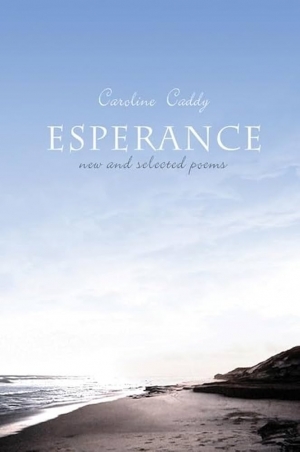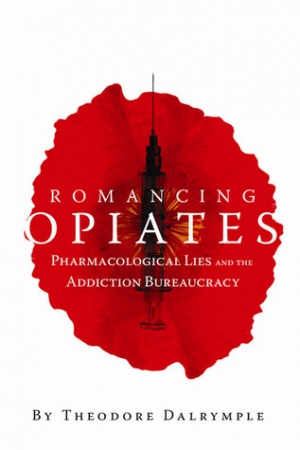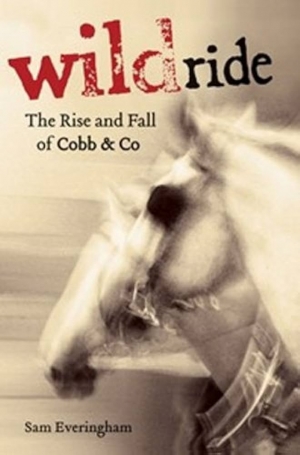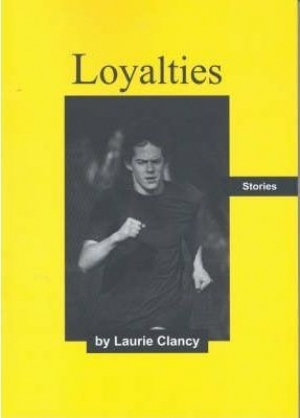Archive
Janet Upcher reviews 'Esperance: New and selected poems' by Caroline Caddy
The eponymous poem in Caroline Caddy’s latest collection Esperance captures a breathtaking glimpse of a bay on the Western Australian coast. Immediacy epitomises Caddy’s poetic gift. In deft strokes, she provides a vivid land/seascape, compressing an astute reflection on history, geography, and humanity’s irrepressible need to explore beyond known boundaries. The language is physical and sensuous: ‘the snowy beaches / lapped by the cold clear bracelet / that’s there then not there / around our ankles.’ There is also a metaphysical dimension, ‘with everything falling away behind / with everything falling away ahead’ mirroring ‘esperance’: a quality of hope and faith in the future.
... (read more)Andrew Burns reviews ‘Romancing Opiates: Pharmacological lies and the addiction bureaucracy’ by Theodore Dalrymple
Theodore Dalrymple’s latest book, Romancing Opiates, slams societal and professional attitudes to heroin addiction. Dalrymple argues that heroin users are not blameless patients, as the medical fraternity would have us believe. ln fact, he tells us, heroin users have to work quite hard to get addicted; withdrawal is about as difficult as the flu; and the support industry, which he calls the ‘addiction bureaucracy’, is ineffective and self-serving. Dalrymple contends that the heroin epidemic cannot be dealt with until it is recognised as a moral and spiritual problem rather than solely as a medical one.
... (read more)Steve Gome reviews ‘Wild Ride: The rise and fall of Cobb & Co.’ by Sam Everingham
The history of Cobb & Co. belongs as much in the territory of folklore as it does in the annals of business. Within forty years of its inception, the company had become synonymous with coach travel in Australia, and later became the subject of a nostalgic tribute in verse by Henry Lawson. There is much ground to cover, and this book blazes new trails as it travels between the commercial and the iconic aspects of Cobb & Co.’s operations.
... (read more)Neal Blewett reviews 'Kevin Rudd: The biography' by Robert Macklin and 'Kevin Rudd: An unauthorised political biography' by Nicholas Stuart
One of the hazards of election years these days is the quickie biography of the latest Opposition leader. As Simon Crean missed out on an election, so he missed out on a quickie. On the other hand, in 2004 his successor Mark Latham scored two – or three if we include Michael Duffy’s comparative study of the two political bruisers Latham and Abbott. Not that it did Latham, or probably the reputation of the authors, much good.
... (read more)Steve Evans reviews 'Blast: Poetry and other critical writing' edited by Ann Nugent
The production of literary magazines is a collaborative effort, and small ones tend to bring together people who are united in an enthusiasm that transcends financial aspiration. Translated, this means there is no money in it. The editorial notes for the rejuvenated Blast reveal what seems to be a family affair at work: the publisher–editor is Ann Nugent, and the person responsible for design and layout is Peta Nugent. Issues 4 and 5 appeared for review, but I have concentrated here on the first of these.
... (read more)Patrick Allington reviews 'His Master’s Voice: The corruption of public debate under Howard' (Quarterly Essay 26) by David Marr
The continued success and quality of the Quarterly Essay series has done much to promote the long essay as a legitimate forum for detailed, informed and accessible political discussion. That this has occurred during the Howard era suggests that all is not lost in the quest for genuine public debate. In the latest Quarterly Essay, David Marr acknowledges that, ‘[s]uppression is not systematic. There are no gulags for dissidents under Howard.’ Nevertheless, His Master’s Voice is born of, and fuelled by, exasperation. Marr makes little effort to mask his personal enmity towards John Howard. And his disgust at the manner in which the federal Coalition has governed for more than a decade is palpable: ‘Since 1996, Howard has cowed his critics, muffled the press, intimidated the ABC, gagged scientists, silenced non-government organisations, neutered Canberra’s mandarins, curtailed parliamentary scrutiny, censored the arts, banned books, criminalised protest and prosecuted whistleblowers.’
... (read more)It is a treat to see ten of Laurie Clancy’s short stories collected in this volume, his third. Given their quality, it is not surprising that seven of them have already been published in magazines and anthologies. But to read them together is to see their interdependence, their thematic patterns. All deal with male experience, beginning with that of the fourteen-year-old Leo, on the brink of sexual knowledge; and moving on to stories of middle-aged men contemplating the emptiness of their lives. The collection concludes with two stories about death, one from cancer, one from AIDS.
... (read more)Morag Fraser reviews 'Cultural Amnesia: Notes in the margin of my time' by Clive James
Conversation is the raison d’être of this monumental monologue. But you might not think so if you read only the reviews. Splenetic, greensick criticism – and there has been plenty of it – insists that what Clive James has built out of a life’s voracious reading and careful noticing – his ‘notes in the margin’ – is a platform for his ego. Not so. But how ruthlessly we skin our own ...
... (read more)Listen, Lesbia!
Surely you can hear.
Shake off that silly hangover
while I part the curtains
just slightly.
Our landlord’s man has let us off this time,
We’re not expelled.
Victorians liked their mortar made with lime,
Our walls have held.








